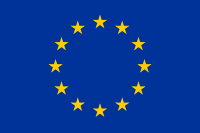"Digital transitions in the Cultural Heritage Sector"
Understanding the digital future of Cultural Heritage and Research
Programma
Timezone: CEST
The cultural heritage sector is today embracing the urgency to transform the threat of COVID-19 into an opportunity to make cultural and creative content accessible through digitization. By looking at the online Open Platforms’ features and interactions (a complex mix of market and non-market elements, a mutable space in perpetual evolution and increasingly interactive with traditional sectors through forms of direct engagement), the cultural heritage sector can find brand new instruments to tackle the challenge and orchestrate its development plan.
In this view, some museums are already implementing best practices of value (co)creation in terms of serving as innovation and welfare hotspots, sustainability facilitators, social cohesion gateways, by digitizing and opening their collections and activities to the possibility of creative appropriation and remix of its contents by users. Looking at the entire cultural heritage sector and at its interactions, which are the practices that can today be considered well established and which are the emerging trends in terms of involving users in the production, re-production and preservation of digitized culture? When cultural digitized contents engage in dialogue with the Digital Single Market, which forms can they take and in which sectors are mainly re-used?
Programmme
10:00 Welcome with Maria Tartari (IULM University)
10:05 Introduction: inDICEs project: A Holistic Perspective with Sara Di Giorgio (inDICEs Project Manager)
10:10 Keynote speech: The EU policy agenda: Digital Transformation for cultural heritage sector in COVID-19 period with Rickard Bucksch (European Commission)
10:20 Round Table: ”How areas of cultural production intertwine especially after COVID-19 forced digitalization and which are the emergent areas to be observed” moderated by: Pier Luigi Sacco (Bruno Kessler Foundation & IULM University)
Contributors: Serena Tabacchi (Museum of Contemporary Digital Art, Tate Modern), Maria Elena Colombo (Accademia di Belle Arti di Brera), Gerfried Stocker (Ars Electronica) and Sabine Himmelsbach (HeK Basel)
11:10 Community Engagement: Launch of the inDICEs Open Call for Sources with Pier Luigi Sacco (Bruno Kessler Foundation & IULM University)
11:15 Wrap-up and closing remarks with Pier Luigi Sacco (Bruno Kessler Foundation & IULM University)
11:20 End of the session
Timezone: CEST
inDICEs is developing a solution to help cultural heritage practitioners and researchers to carry out their work in the field. This session will serve as an opportunity to gather feedback and insights from researchers and cultural heritage practitioners on their specific needs related to the data they would like to see/ have access to with respect to the digital aspects.
Timezone: CEST
New technologies and the COVID-19 pandemic have undoubtedly changed the cultural content-sharing scene impacting cultural heritage institutions in a considerable manner. Further uses of their collections, new modes of access to the cultural content and even new business models have raised in the digital era.
Considering the entire cultural heritage sector and at its current and future interactions in the accelerated digital era, this session provides a brief introduction to rights management in cultural organizations, and focuses on sharing collections sustainably and meaningfully. The aim is to gather information and to present best practices from cultural institutions on how their cultural content is shared online: from their relationship with rights holders to their relationship with users, through the uses of their cultural resources. The current legal challenges faced by the cultural institutions and the future trends are emphasized through a number of case studies carefully selected to be shared with the audience and generating a direct response from the sector.
This will also give the opportunity to cultural institutions to engage in interesting discussions within the inDICEs participatory platform in the coming future and to connect with other institutions.




